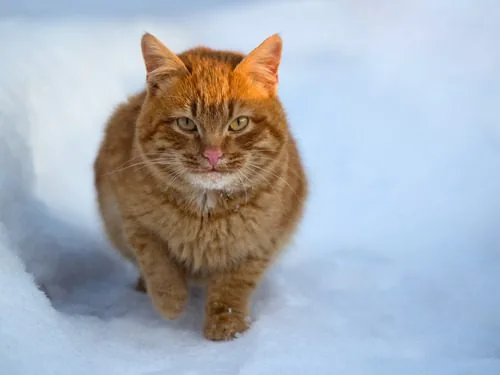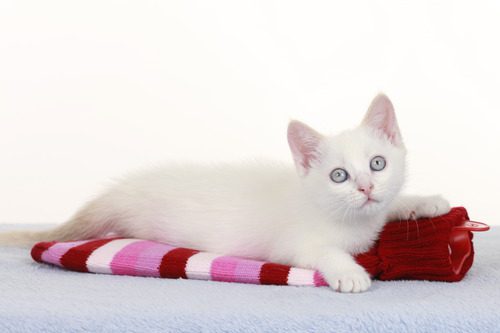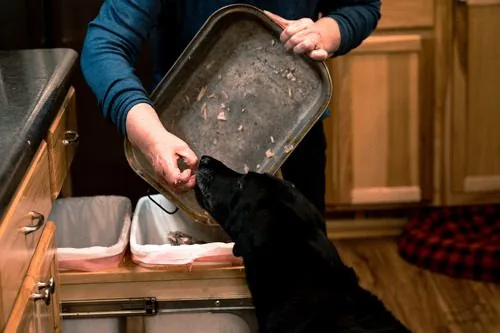Cats are curious creatures, often exploring the outdoors even when the weather turns chilly. But when temperatures drop, your cat’s health can be at risk. One significant danger is frostbite, a severe condition caused by prolonged exposure to freezing temperatures. In this blog, we’ll explore whether cats can get frostbite, the symptoms to watch for, preventive measures, and what to do if you suspect your cat has frostbite. For any concerns or to ensure your cat’s safety, contact Birch Lake Animal Hospital at (651) 426-2246 or book an appointment online.

Understanding Frostbite in Cats
Frostbite occurs when skin and underlying tissues freeze due to extreme cold. Cats can indeed get frostbite, especially on areas with less fur such as their ears, paws, tail, and nose. These areas are more vulnerable to the cold, and prolonged exposure can cause tissue damage. Frostbite in cats is a serious condition that requires prompt attention from a veterinarian.
How Does Frostbite Occur in Cats?
Frostbite in cats happens when the body constricts blood flow to the extremities to preserve core body temperature. This reduced blood flow can cause ice crystals to form in the tissues, leading to cellular damage. If left untreated, frostbite can lead to tissue death and may require amputation of the affected areas. The key to preventing severe damage is early detection and immediate veterinary care.
Recognizing the Symptoms of Cat Frostbite
Knowing the symptoms of frostbite can help you take swift action to protect your cat’s health. Here are the signs to look out for:
Early Signs of Frostbite in Cats
In the initial stages, the affected areas may appear pale or gray and feel cold and hard to the touch. Your cat might exhibit signs of discomfort, such as excessive licking or chewing of the frostbitten area. It’s crucial to notice these early signs to prevent further damage.
Advanced Symptoms of Cat Frostbite
As frostbite progresses, the skin may become swollen, blistered, and turn black due to tissue death. Your cat might show signs of pain, such as limping or reluctance to move. At this stage, frostbite requires immediate veterinary intervention to prevent complications and ensure the best possible outcome for your cat.
Preventing Frostbite in Cats
Prevention is the best way to protect your cat from frostbite. Here are some effective strategies to keep your feline friend safe during the winter months:
- Limit Outdoor Exposure: During extreme cold weather, limit your cat’s outdoor activities. If your cat enjoys being outside, monitor their time and bring them indoors frequently to warm up. Providing a warm, safe environment indoors is crucial for their well-being.
- Provide Warm Shelter: If your cat spends time outdoors, ensure they have access to a warm, insulated shelter. The shelter should be elevated off the ground and protected from wind and moisture. Adding blankets or straw can help retain heat and keep your cat comfortable.
- Regular Health Checks: Regular veterinary check-ups can help identify any health issues that might make your cat more susceptible to frostbite. A healthy cat is better equipped to handle cold weather, so maintaining your cat’s overall health is essential.
What to Do If You Suspect Frostbite in Your Cat
If you suspect your cat has frostbite, it’s vital to act quickly and seek veterinary care. Here are the steps to follow:
Immediate Actions
Move your cat to a warm environment and wrap them in a blanket. Avoid rubbing the affected areas, as this can cause further damage. You can use warm (not hot) water to gently warm the frostbitten areas, but the priority should be to get your cat to a veterinarian as soon as possible.
Veterinary Treatment
Your veterinarian will assess the severity of the frostbite and provide appropriate treatment. This may include pain management, antibiotics to prevent infection, and, in severe cases, surgery to remove dead tissue. Early intervention can significantly improve the outcome for your cat.
Why Quick Action Matters for Cat Frostbite
Prompt treatment is crucial when dealing with frostbite. The longer the exposure to freezing temperatures, the greater the risk of severe tissue damage. By recognizing the symptoms early and seeking immediate veterinary care, you can help minimize the impact of frostbite on your cat’s health.
Ensuring Your Cat’s Safety During Cold Weather
Taking proactive steps can help keep your cat safe and healthy during winter. By understanding the risks of frostbite, recognizing the symptoms, and knowing how to prevent and respond to this condition, you can protect your feline friend from the dangers of extreme cold. For any concerns or further guidance, call Birch Lake Animal Hospital at (651) 426-2246 or book an appointment online.
Recent Posts
About Birch Lake Animal Hospital
The staff at Birch Lake Animal Hospital seeks to provide the best possible medical care for our highly-valued patients and clients.





